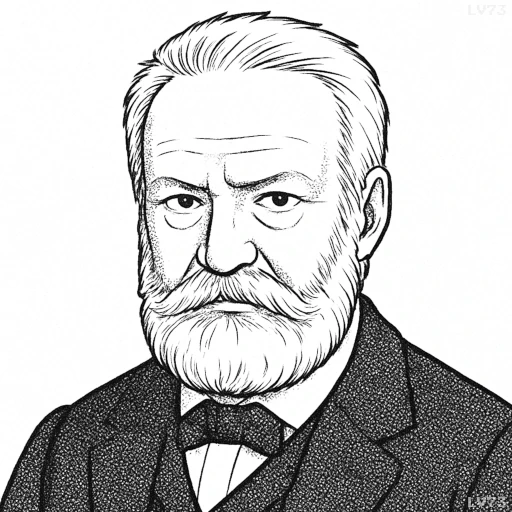“One sometimes says: ‘He killed himself because he was bored with life.’ One ought rather to say: ‘He killed himself because he was bored by lack of life.'”

- February 26, 1802 – May 22, 1885
- Born in France
- Author, poet, playwright
table of contents
Quote
“One sometimes says: ‘He killed himself because he was bored with life.’ One ought rather to say: ‘He killed himself because he was bored by lack of life.'”
Explanation
In this quote, Victor Hugo challenges the perception of suicide and existential despair, suggesting that the true cause of such despair is not necessarily a boredom with life itself, but rather a lack of meaningful engagement or vibrancy in life. The first part of the common expression, “bored with life,” implies that life itself is inherently dull or lacking in value. However, Hugo reinterprets this by suggesting that it is actually the absence of purpose, passion, or vitality—a lack of true engagement with life—that causes such profound despair. The feeling of boredom is a result of not living fully or not experiencing the richness that life has to offer.
This distinction emphasizes Hugo’s belief in the importance of purpose, meaning, and inner vitality. It is not life that is inherently boring, but the experience of living without purpose or depth that can lead to feelings of emptiness. Hugo’s words reflect his Romantic perspective on the importance of emotional richness and human connection, where the loss of engagement with life—whether through emotional isolation, lack of fulfillment, or external circumstances—leads to profound disillusionment and despair.
In modern terms, this quote speaks to the idea that meaninglessness—or the lack of fulfillment in life—is a significant factor in mental health struggles, particularly in moments of extreme despair. It highlights the importance of connection, purpose, and engagement in cultivating a life that feels worth living. Rather than seeing life itself as inherently uninteresting, Hugo encourages us to seek out the aspects of existence that bring meaning and vitality, suggesting that the problem lies not in life itself, but in the lack of life that we experience when disconnected from our deeper passions and purposes.
Would you like to share your impressions or related stories about this quote in the comments section?





